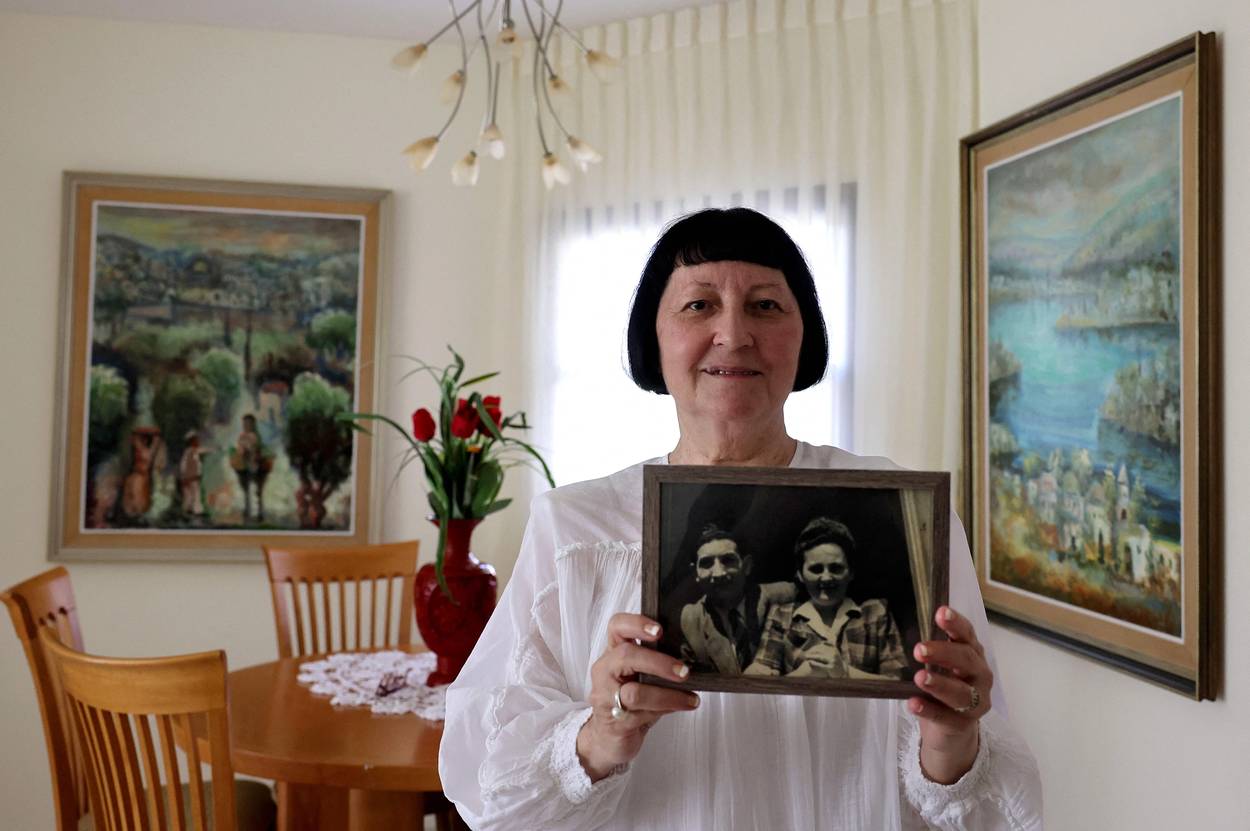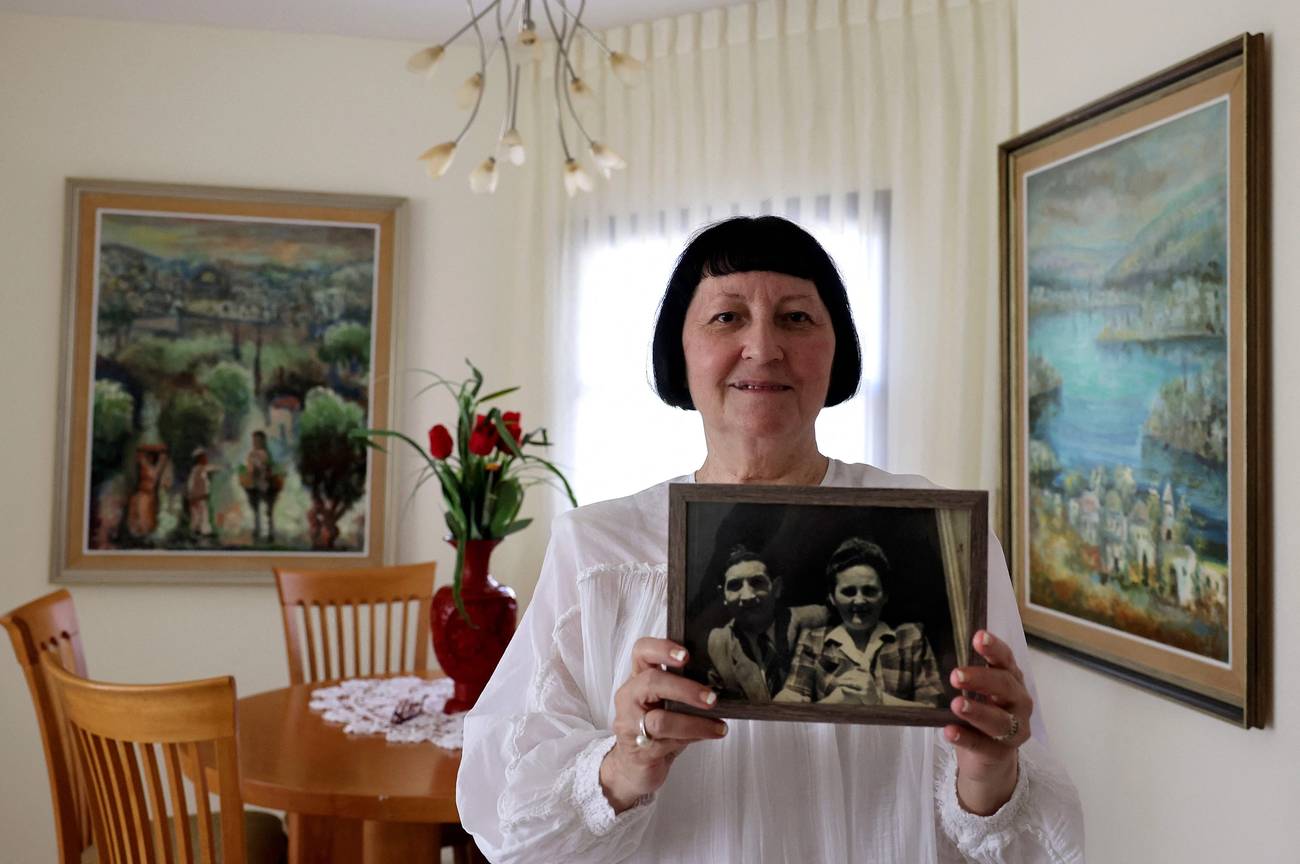Why Poland Is Right to End Holocaust Property Claims
There’s a name for people who imagine that the right to reclaim your great-grandmother’s house should extend forever: Palestinians




Taking a break from mismanaging the rapid resurgence of COVID-19 in a country that was until recently praised as a world leader in beating the pandemic, Israel’s prime minister and foreign minister found something else to be very worried about: Poland.
Last week, the Polish parliament amended an existing law by setting a 30-year limit on all legal cases involving attempts to reclaim seized property, as well as terminating all restitution claims that haven’t reached a final decision in the past three decades. Such limitations are not rare among European nations, and yet the Polish law struck Israel’s leaders as nothing short of Holocaust denial.
“It is a shameful decision and a disgraceful contempt for the memory of the Holocaust,” Prime Minister Bennett said in a statement. His coalition partner, Yair Lapid, translated the Israeli government’s ire into action, recalling Israel’s top diplomat in Warsaw, and instructing the Polish ambassador to Israel, who was vacationing in his native land, to remain there until further notice.
“Poland,” thundered Lapid, “has tonight become an anti-democratic, nonliberal country that does not honor the greatest tragedy in human history.”
All right. We’ll bite.
So Israel’s foreign minister doesn’t believe that property claims following seismic shifts like major wars, large-scale border changes, and other transformational historical events should be time-dependent—or that countries have a right, indeed a moral responsibility, to draw a line under the past and move on in order to ensure the happiness and prosperity of the people who actually live there. Instead, he imagines generations of Jews brandishing the rusty keys to their family homes in Krakow, or in some no-longer existent shtetl, and vowing to one day obtain their ancestral properties, which have since become homes to other people, who are trying their best to build a future for their children.
Sound like anyone we know?
Following Lapid’s logic of infinite grievance, we should now turn our eyes on Cordoba and Madrid and reclaim the haciendas that once housed our ancestors.
We have a word for endless attachment to mythic property claims while whining and beseeching and denouncing and appealing to tortured interpretations of international law while blaming other people for their problems: Palestinian. This strategy of perpetual pining and playing the victim and demanding compensation for history’s injuries has turned the Palestinians into political losers at literally every turn in their short and miserable collective history. So it’s nothing short of mind-boggling that a senior Israeli official would now giddily embrace the same backward-looking logic. In fact it’s doubly mystifying, because this way of being in the world is precisely what Zionism is meant to replace.
The movement to reclaim that Jewish homeland was never centered in the notion that our ancestors, from Abraham onwards, owned a bit of real estate in the most promised land; Herzl was hardly a Bible scholar. We gravitated back to the Land of Israel not because of some yellowing historical deed to property someplace that we didn’t want to ever see again but because it was the crucible of our people, the seat of the cultural and historical memory that invited us to build a nation of our own and each time make it more perfect, more timeless, more Jewish. Put more crassly, Zionism’s key lesson is this: We only have one homeland, not 10.
If the point of Zionism was instead the infinite revival of ancient real estate claims, why stop with Israel? We should now, following Lapid’s logic of infinite grievance, turn our eyes on Cordoba and Madrid and reclaim the haciendas that once housed our ancestors. Ah, the golden age of Spain! And why stop there? What about Sura and Pumbedita, the Babylonian homes to the twinned Talmudic academies that between 589 and 1038 CE gave birth to much of what we now know as Judaism? Surely, we have claims there, too—as well as in Aleppo. How about Maimonides’ house in Cairo?
Does any sane Jew today wish to make his or her life in Iraq and Syria? No. Those countries belong to their citizens. The flip side of Zionism is that Babylonia belongs to the Babylonians, just as modern-day Poland belongs to the people who today call themselves Poles, and who are rooted in Polish history, language, and culture. As blinkered, touchy, and insensitive as its representatives can sometimes be, Poland is their country and not ours.
Lapid is slated to replace Bennett at the helm in 2023 as part of an agreement between their two parties, and anyone curious about how the soon-to-be prime minister of the Jewish state could be so willfully ignorant of the basic concepts that undergird Jewish national existence need only pay attention to Lapid’s speech earlier this summer, addressing the Global Forum for Combating Antisemitism. Radically redefining the world’s oldest hatred, Lapid claimed that antisemitism should be a term applied to any form of discrimination against any marginalized group anywhere, not just Jews.
“It’s time that we tell the right story about antisemites,” he said. “Antisemites weren’t only in the ghetto in Budapest. The antisemites were the slave traders who threw chained slaves into the ocean. The antisemites were the Hutu tribe members in Rwanda that slaughtered the Tutsis. The antisemites are those Muslims who have killed more than 20 million fellow Muslims in the past decade. The antisemites are the Islamic State and Boko Haram.”
If Lapid indeed believes this brain-dead claptrap, shouldn’t he focus his ire on, say, Germany, the country that actually masterminded and perpetrated the Holocaust, and which last month chose not to pay reparations to the descendants of the tens of thousands of Herero and Nama people it slaughtered in Namibia during its cruel colonization there early in the 20th century, offering instead a meager investment in infrastructure development as a token of remorse?
Sadly, there might be another, more craven reason for Lapid’s preening attack on the Poles, one that has to do with the new Israeli government’s desire to endear itself to the new administration in Washington.
How to course-correct from all that Trump-love that was Bibi Netanyahu’s signature political move? Here’s one possibility: Join Secretary of State Antony Blinken in condemning the Poles. Warsaw, you may remember, hosted former Prime Minister Netanyahu, together with Arab and American diplomats, in a 2019 conference dedicated to combating the Iranian threat. Now that cozying up to the murderous mullahs is once again America’s core Middle East policy, it’s time to put those pesky Poles back where they belong, in the box labeled “antisemites.”
What a shame. But Jews—in Israel, in America, and everywhere else—mustn’t be disturbed by all this muddle-mindedness. The reality here is clear: Poland, a nation that suffered like few others from the twin evils of Nazism and communism, has every right to place a sensible limit on people—Jews and non-Jews alike—who think that history must be frozen in time and made to respect their claims to property that belongs now to the people who live and work there every day. Poland has every right to reassure its citizens that restitution claims will have limits. And it has every right to feel indignant for being cast, again and again, as somehow the center of historical European antisemitism, while Germany is hailed as a model of historical atonement, even as it continues to heap love and cash on a foreign regime explicitly committed to denying the Holocaust and bankrolling the murder of Jews worldwide.
Poland is right in this particular skirmish, but, even more importantly, Israel is blatantly and painfully wrong. Jewish historical suffering shouldn’t be converted, like so many casino chips, into cheap currency to be gambled away on some clever-seeming political move. Jewish history—or, more accurately, Jewish memory—is meaningful precisely because it has always resisted such crass transactions. We must keep it that way.
Liel Leibovitz is editor-at-large for Tablet Magazine and a host of its weekly culture podcast Unorthodox and daily Talmud podcast Take One. He is the editor of Zionism: The Tablet Guide.